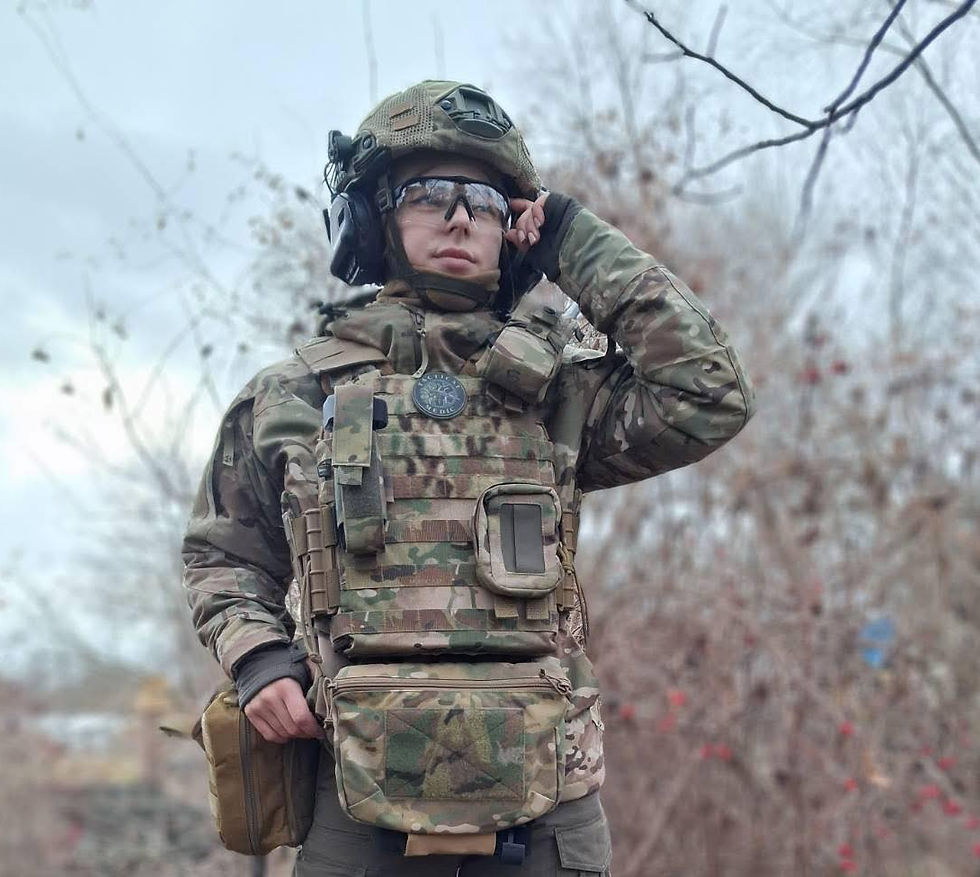A day lasts 24 hours, 20 of which we spent on the road
- Oleksiy

- Mar 20, 2023
- 3 min read
They needed to pick up the new arrivals as soon as they had transported some of the wounded. At half past two in the morning, the crew unanimously agrees to continue the trip.
Along the way, they joke that the "Avstriyka" bus is the scene of a national competition to see who gets the most gratitude. The paramedics and doctors thank everyone for their bravery and wish them good health. In turn, they are grateful for their responsiveness. Some crew members say it doesn't feel like they are on their feet for 20 hours in such an atmosphere: gratitude inspires them.
By chance, men from all over Ukraine, found themselves on the same bus. Despite their fatigue, they are eager to talk. These stories can be used to weave a tapestry of brotherhood in the struggle. Almost all of them saw the Donetsk region for the first time when they came to defend it.

Only 48-year-old Mykola from the 72nd separate mechanized brigade of the Black Cossacks had lived in Donetsk for 21 years. Before the war, he bought a three-room apartment. He lost it. With four children, they had to become internally displaced and settle in the Kyiv region. The full-scale invasion caught Mykola in a train. At 04:30, he was on his way to work.
Accompanied by the cannonade of enemy warnings, he returned home. The conversation with his wife was short. She, whom Mykola had married a week after meeting and had been married for more than twenty years.
"During the war," he says, "you can't count the number of birthdays. You go to bed alive - it's a holiday. You wake up - it's a holiday. There was an intrusion, and you survived - it's a holiday."

On the next bed of our mobile hospital, there is a 25-year-old Serhiy from Vradiivka, Mykolaiv region. He has an amputation. Before the full-scale invasion, he was building monolithic bridges in the Czech Republic.
"It hit me right in the leg. I had to lie down for another 40 minutes: they didn't let me go - they were shooting. I immediately applied a tourniquet, but at the stabilization point, they told me my leg couldn't be saved - it was crushed," shares Serhiy.

In front of me lies 43-year-old Ruslan from Khmelnytskyi Region. Before the war, he worked as a builder, but now he has shrapnel wounds in his stomach, pelvis, and legs.
There are other wounded people on the bus who don't need any medical systems or drips, but it hasn't been easy for them either. In front of them is a large and robust farmer from Zhovti Vody in Dnipro Region with curly hair and a Cossack mustache. His missing thumb is tightly bandaged, and he holds a bun with cottage cheese. The shell fragment wounded his other hand, which is also bandaged around the neck. He looks to be about 50 years old.
"Let's talk about the land, shall we? I have a whole lot of it. After we win, I'm gonna take care of the crops" he says. He laughs, jokes, and eats the bun with a remarkable appetite.
There is blood on his face as a result of shrapnel wounds. Next to him sits a man with a pneumothorax - his lung has been punctured. In his hands, he holds a jar of his own blood - a chest tube.
Paramedics offer juice, water, and other refreshments, and there is even a chance to smoke - the drivers are ready to stop for a few minutes. Everything seems to be relatively calm and alright. But uncertainty is the real problem.





Comments